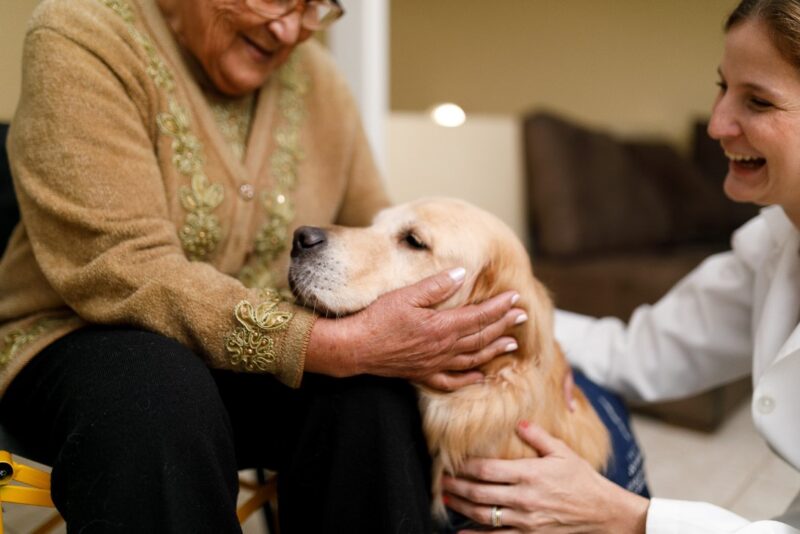Pets have long been cherished companions, bringing joy, comfort, and unconditional love into the lives of their owners. Beyond being delightful furry friends, animals, especially in the context of pet therapy, have proven to play a significant role in promoting the well-being of the elderly.
As the aging population continues to grow, exploring alternative and holistic elder care solutions becomes crucial. One such solution gaining recognition is the integration of pet therapy into elderly care programs.
Understanding Pet Therapy
Pet therapy, also known as animal-assisted therapy, involves trained animals working alongside healthcare professionals to assist individuals in improving their physical, emotional, and social well-being. This therapeutic approach is not limited to a specific age group, but its benefits for the elderly are particularly noteworthy.
Emotional and Mental Health Benefits
Loneliness and depression are common challenges among the elderly, especially those in assisted living or nursing homes. The presence of animals has been shown to alleviate these feelings, providing companionship and a sense of purpose.
Interacting with pets can trigger the release of oxytocin, a hormone associated with bonding and happiness. This emotional connection can be a powerful antidote to the isolation often experienced by seniors.
Physical Health Improvements

Beyond emotional well-being, pet therapy contributes to physical health. The simple act of petting an animal can reduce stress and lower blood pressure. For elderly individuals dealing with chronic conditions, the calming effect of spending time with a pet can complement medical interventions and contribute to an overall improvement in health.
Enhanced Social Interaction
Elderly individuals may sometimes find it challenging to engage in social activities, leading to feelings of isolation. Introducing pets into their environment encourages socialization, as fellow residents, caregivers, and visitors are drawn to the animals. This increased social interaction can foster a sense of community and belonging, contributing to a more positive and fulfilling living experience.
Implementing Pet Therapy in Elder Care Solutions
The integration of pet therapy into elder care programs is a thoughtful and innovative approach to addressing the diverse needs of the elderly. Institutions offering elder care solutions recognize the value of holistic well-being and are incorporating pet therapy into their services.
If you are exploring elder care solutions near you, consider facilities that embrace the benefits of pet therapy. These institutions prioritize the overall health of their residents by providing opportunities for positive interactions with animals. To find elder care solutions near you that include pet therapy as part of their holistic approach, visit elder care solutions near me.

Conclusion
As we navigate the evolving landscape of elderly care, embracing innovative approaches such as pet therapy becomes essential. The positive impact of animals on emotional, mental, and physical well-being is undeniable, making them valuable allies in the pursuit of a fulfilling and healthy life for the elderly.
If you or a loved one is seeking comprehensive elder care solutions, consider the benefits of facilities that incorporate pet therapy into their programs, contributing to a more vibrant and enriched living experience for seniors.



